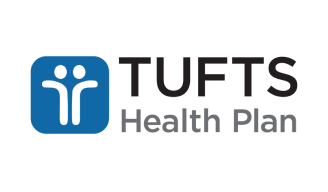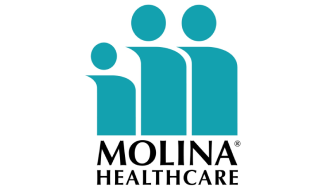Asheville, North Carolina, United States
Ritual Recovery
Verified
Verified
This provider’s information has been quality-checked by Recovery.com’s Research Team for accuracy and completeness, including center verification through appropriate third-party organizations.
Joint Commission Accredited
The Joint Commission accreditation is a voluntary, objective process that evaluates and accredits healthcare organizations (like treatment centers) based on performance standards designed to improve quality and safety for patients. To be accredited means the treatment center has been found to meet the Commission's standards for quality and safety in patient care.
Provider's Policy
We accept most commercial insurance plans that cover out-of-network benefits, which are typically PPO insurance plans. Ritual Recovery does not accept Medicaid, Medicare, or state insurance.
Estimated Cash Pay Rate
The cost listed here ($20,000 / 30 days) is an estimate of the cash pay price. Center pricing can vary based on program and length of stay. Contact the center for more information. Recovery.com strives for price transparency so you can make an informed decision.
About Ritual Recovery
Ritual Recovery provides a supportive environment where clients can delve into therapy, develop coping skills, and address the underlying issues contributing to their addiction, all while maintaining their work, school, or family commitments. In each level of outpatient care—day treatment (PHP), intensive outpatient (IOP), general outpatient (OP), and telehealth—they combine traditional, holistic, evidence-based, and modern therapeutic approaches.
Find a Personal Path to Recovery
Ritual Recovery offers a dual-diagnosis, trauma-informed approach rooted in the belief that no two clients are alike. Their integrative wellness model blends evidence-based, 12-Step, holistic, and Eastern practices to treat mind, body, and spirit. Clients engage in mindfulness, movement, and nutrition-focused care, and address co-occurring disorders like anxiety, depression, post-traumatic stress disorder, bipolar disorder, and borderline personality. Family members can participate in therapy sessions and weekly virtual support meetings.
Discover an Atmosphere of Safety and Possibility
At Ritual Recovery, clients find a newly renovated space where they can feel safe and comfortable doing difficult work. Situated on 60+ acres, the upscale facility includes spacious group rooms, wellness and creative areas, workstations, and a client lounge and snack bar. Clients also enjoy a growing list of sober activities—from nature outings to sports to community events—that support connection, movement, and fun. Transportation may be provided within a 180-mile radius, offering convenience alongside exceptional care.
Stay Supported After the Program
Ritual Recovery offers comprehensive aftercare planning led by primary therapists and case managers. Through personalized guidance and support, they ensure clients have the resources and tools they need to maintain sobriety and continue their progress. Their alumni program also provides lasting connections and ongoing support with monthly processing groups and quarterly events.
Read More

Insurance Accepted
Provider's Policy:We accept most commercial insurance plans that cover out-of-network benefits, which are typically PPO insurance plans. Ritual Recovery does not accept Medicaid, Medicare, or state insurance.
Choose from 4 Levels of Outpatient Care
Ritual Recovery offers 4 outpatient levels tailored to client needs. Day treatment is the most intensive, with 4 groups daily, weekly individual therapy, and adventure therapy. IOP meets for 3 hours 3 times a week. General outpatient offers up to 25 hours of weekly groups and suits those with well-managed symptoms. Day treatment and IOP are also offered virtually.
Stay in High-End Supportive Housing
Ritual Recovery has a strategic partnership with a reputable high-end sober living facility 20 minutes outside Asheville. The retreat-like location provides sports facilities, musical instruments, cozy communal spaces, nutritious meals, and access to downtown Asheville. This collaboration enhances clients’ recovery experience, providing a seamless transition from intensive treatment to a nurturing sober living environment.
Balance Recovery with College Life
Ritual Recovery supports college students through outpatient programs that balance treatment with academic life. Clients begin with intensive therapy and step down as they progress, allowing more time for class and other commitments. The program includes individual and group therapy, family involvement, and university collaboration to accommodate educational needs or support time off from school.
Fuel Healing with Adventure & Recreation
Ritual Recovery’s breathtaking natural surroundings serve as the perfect backdrop for outdoor activities such as hiking scenic trails, adventure therapy to promote personal growth and resilience, and walks to connect with nature and enhance mindfulness. These experiences encourage physical activity, mental clarity, and connection with self and surroundings.

Center Overview
Estimated Cash Pay Rate
Older Adults
Addiction and mental health treatment caters to adults 55+ and the age-specific challenges that can come with recovery, wellness, and overall happiness.
Executives
Executive treatment programs typically directly support the needs of people who manage businesses and may provide flexible schedules and office space to allow work during treatment.
Young Adults
Emerging adults ages 18-25 receive treatment catered to the unique challenges of early adulthood, like college, risky behaviors, and vocational struggles.
LGBTQ+
Addiction and mental illnesses in the LGBTQ+ community must be treated with an affirming, safe, and relevant approach, which many centers provide.
Men and Women
Men and women attend treatment for addiction in a co-ed setting, going to therapy groups together to share experiences, struggles, and successes.
Midlife Adults
For adults ages 40+, treatment shifts to focus on the unique challenges, blocks, and risk factors of their age group, and unites peers in a similar community.
Mild Disabilities
Adults with mild physical or intellectual disabilities receive treatment catered to their specific needs in a safe and clinically supportive environment.
Pregnant Women
Addiction and mental health treatment meets the clinical and psychological needs of pregnant women, ensuring they receive optimal care in all areas.
Professionals
Busy, high-ranking professionals get the personalized treatment they need with greater accommodations for work, privacy, and outside communication.

Treatment Focus
This center treats primary substance use disorders and co-occurring mental health conditions. Your treatment plan addresses each condition at once with personalized, compassionate care for comprehensive healing.

Care Options








Treatment
Specializations
Day Treatment
In a PHP, patients live at home but follow an intensive schedule of treatment. Most programs require you to be on-site for about 40 hours per week.
Alcohol
Using alcohol as a coping mechanism, or drinking excessively throughout the week, signals an alcohol use disorder.
Co-Occurring Disorders
A person with multiple mental health diagnoses, such as addiction and depression, has co-occurring disorders also called dual diagnosis.
Drug Addiction
Drug addiction is the excessive and repetitive use of substances, despite harmful consequences to a person's life, health, and relationships.
Intensive Outpatient Program
In an IOP, patients live at home or a sober living, but attend treatment typically 9-15 hours a week. Most programs include talk therapy, support groups, and other methods.
Opioids
Opioids produce pain-relief and euphoria, which can lead to addiction. This class of drugs includes prescribed medication and the illegal drug heroin.
Outpatient
During outpatient rehab, patients attend a structured treatment program while continuing to live at home.
Sober Living
These structured living environments help people transition out of rehab. Residents have more freedom than they do during rehab, but still follow certain rules.
Approaches
Evidence-Based
A combination of scientifically rooted therapies and treatments make up evidence-based care, defined by their measured and proven results.
Holistic
A non-medicinal, wellness-focused approach that aims to align the mind, body, and spirit for deep and lasting healing.
Individual Treatment
Individual care meets the needs of each patient, using personalized treatment to provide them the most relevant care and greatest chance of success.
Personalized Treatment
The specific needs, histories, and conditions of individual patients receive personalized, highly relevant care throughout their recovery journey.
Therapies
1-on-1 Counseling
Patient and therapist meet 1-on-1 to work through difficult emotions and behavioral challenges in a personal, private setting.
Meditation & Mindfulness
A practiced state of mind that brings patients to the present. It allows them to become fully aware of themselves, their feelings, and the present moment.
Trauma-Specific Therapy
This form of talk therapy addresses any childhood trauma at the root of a patient's current diagnosis.
Adventure Therapy
This experiential approach uses the physical and emotional challenges of outdoor activities as tools for personal growth.
Art Therapy
Visual art invites patients to examine the emotions within their work, focusing on the process of creativity and its gentle therapeutic power.
Family Therapy
Family therapy addresses group dynamics within a family system, with a focus on improving communication and interrupting unhealthy relationship patterns.
Life Skills
Teaching life skills like cooking, cleaning, clear communication, and even basic math provides a strong foundation for continued recovery.
Music Therapy
Singing, performing, and even listening to music can be therapeutic. Music therapy sessions are facilitated by certified counselors.
Conditions We Treat
Anxiety
Anxiety is a common mental health condition that can include excessive worry, panic attacks, physical tension, and increased blood pressure.
Bipolar
This mental health condition is characterized by extreme mood swings between depression, mania, and remission.
Depression
Symptoms of depression may include fatigue, a sense of numbness, and loss of interest in activities. This condition can range from mild to severe.
Post Traumatic Stress Disorder
PTSD is a long-term mental health issue caused by a disturbing event or events. Symptoms include anxiety, dissociation, flashbacks, and intrusive thoughts.
Trauma
Some traumatic events are so disturbing that they cause long-term mental health problems. Those ongoing issues can also be referred to as "trauma."
Substances We Treat
Alcohol
Using alcohol as a coping mechanism, or drinking excessively throughout the week, signals an alcohol use disorder.
Benzodiazepines
Benzodiazepines are prescribed to treat anxiety and sleep issues. They are highly habit forming, and their abuse can cause mood changes and poor judgement.
Chronic Relapse
Consistent relapse occurs repeatedly, after partial recovery from addiction. This condition requires long-term treatment.
Co-Occurring Disorders
A person with multiple mental health diagnoses, such as addiction and depression, has co-occurring disorders also called dual diagnosis.
Cocaine
Cocaine is a stimulant with euphoric effects. Agitation, muscle ticks, psychosis, and heart issues are common symptoms of cocaine abuse.
Drug Addiction
Drug addiction is the excessive and repetitive use of substances, despite harmful consequences to a person's life, health, and relationships.
Ecstasy
Ecstasy is a stimulant that causes intense euphoria and heightened awareness. Abuse of this drug can trigger depression, insomnia, and memory problems.
Heroin
Heroin is a highly addictive and illegal opioid. It can cause insomnia, collapsed veins, heart issues, and additional mental health issues.
Psychedelics
Hallucinogenic drugs—like LSD—cause euphoria and increased sensory experiences. When abused, they can lead to depression and psychosis.
Methamphetamine
Methamphetamine, or meth, increases energy, agitation, and paranoia. Long-term use can result in severe physical and mental health issues.
Aftercare
Experience
Personal Amenities
Amenities
Special Considerations
Executive Program
Addiction and mental health treatment for executives typically involves high discretion, greater technology access, and more private, 1-on-1 care.
Flexible technology policies
Centers with flexible technology policies allow professionals to stay in touch with work and give patients a greater sense of connection and normalcy.
Young Adults Program
Programs for young adults bring teens 18+ together to discuss age-specific challenges, vocational and educational progress, and successes in treatment.
Activities
Yoga
Yoga is both a physical and spiritual practice. It includes a flow of movement, breathing techniques, and meditation.
Off-Site Activities
Professional Staff

Sarah Tobin
Co-Owner/CFO

Dean Patterson
Owner/CEO

Bryan Brock
Behavioral Health Technician

Holly Neumann
Clinical Director
IOP Director/ Primary Therapist
View More Team Members
Accommodations
Food & Nutrition
Treatment
Value
Pros
- Beautiful Location (4)
- Supportive Aftercare (4)
- Friendly & Competent Staff (3)
- Confidential (3)
William C
Anonymous
Adonis
Sarah G
William J
We love hearing about your treatment experience
Help individuals and families seeking treatment by sharing your first-hand experience with this treatment provider. Review Guidelines.

















































